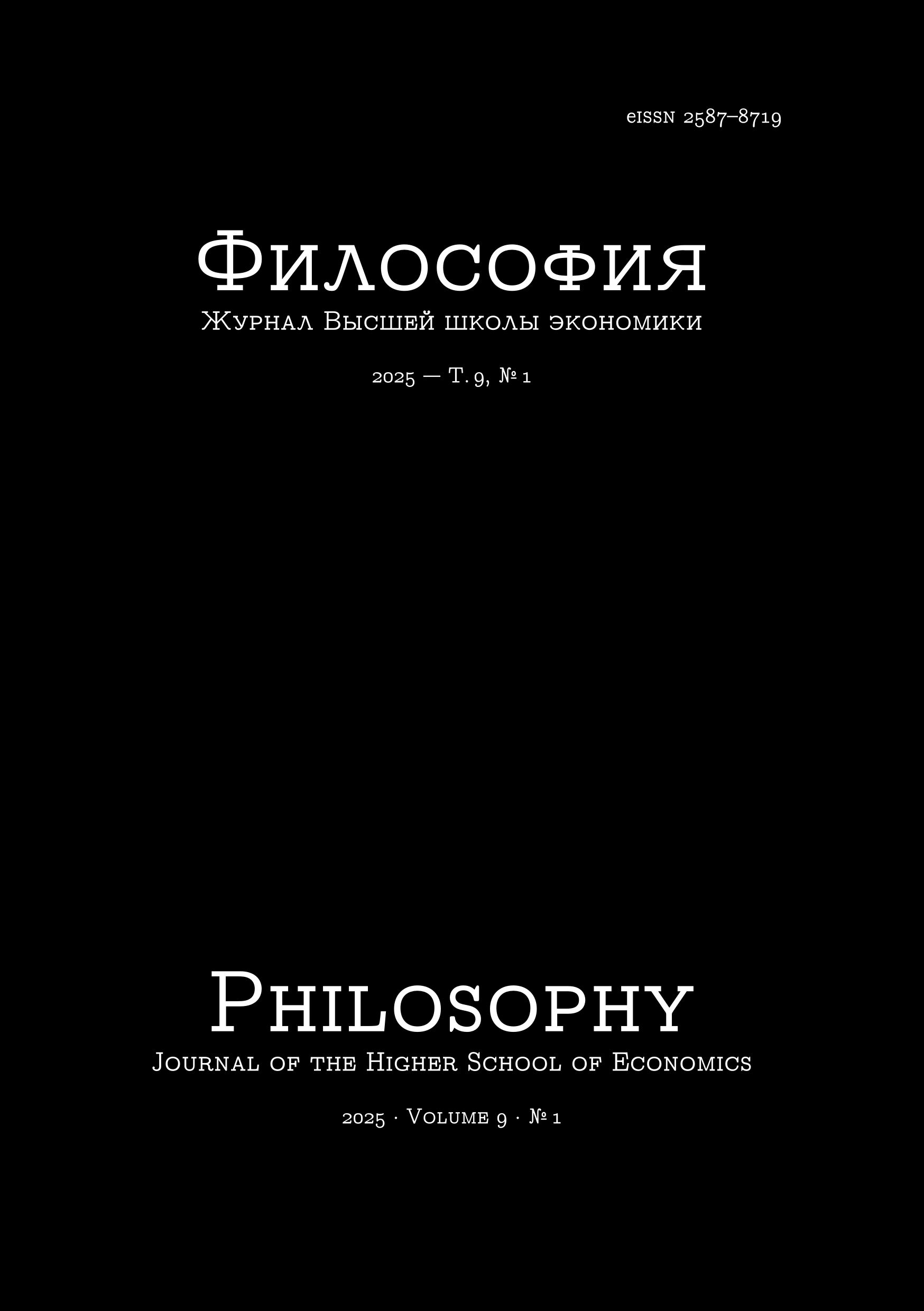“Change of Vision”
Practical Phenomenology in the Works of V. Bibikhin and the OBERIU
Abstract
The article explores practical phenomenology as conceptualized by Vladimir Bibikhin in his lecture series “The Diaries of Leo Tolstoy”. Central to Bibikhin's approach is the attitude of perceiving the spontaneous, an involuntary engagement with something not inherently one's own but directed toward the self. The core requirement is to detach yourself from you, allowing events to unfold on their own. This involuntary aspect embodies the essence of phenomenological responsiveness to things. The desire to “perform phenomenology” must be smaller than phenomenality itself. However, usually we have the contrary, the excess of the phenomenality “waits for the right moment”, hidden behind what is arrested in one's gaze, fixed in observation, or generalized in concepts. Bibikhin's texts represent a form of liberating writing, attempts in writing and with writing aimed at releasing the excessive mass of phenomenality by isolating the “confident self” from the “uncertain self” that remains close to what unfolds autonomously. Such writing constitutes a form of “working on oneself”, an existential experiment in engaging with language to evoke indications of what must manifest spontaneously. Similarly, the OBERIU poets undertook an existential task by meticulously observing everyday life, seeking “cracks”, ruptures, and disjunctions — spaces where the self-acting, non-self could potentially reveal itself. Addressing the radical nature of practical phenomenology within this framework demands a bold search for appropriate forms of expression, which often exceed the boundaries of conventional academic writing.
Downloads
Copyright (c) 2025 Philosophy Journal of the Higher School of Economics

This work is licensed under a Creative Commons Attribution-NonCommercial 4.0 International License.






